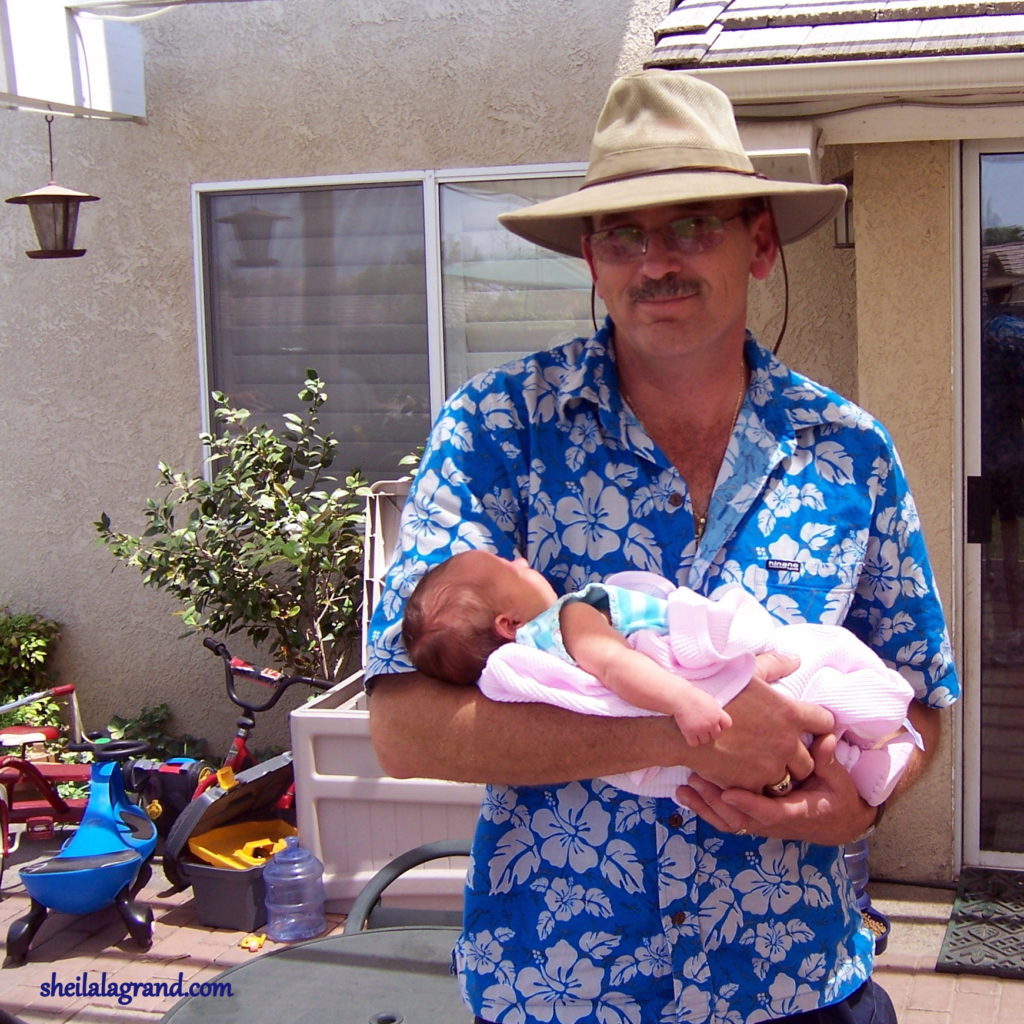Telegraphing Love by the Armful. Rich and Grandlittle Carly. August 2008.
When your family members know you love them for who they are instead of what they do, you give them an enduring gift that will serve them well in tough times. And if your current phase of family life entails disciplining a family member, this all-in love based on your disciplinee’s identity creates a sturdy foundation for rejecting unacceptable behavior without rejecting the beloved person responsible.
I’m confident we are called to this identity-based love since Christ told us to love one another as he has loved us. And his supreme act of love for us, the bible reminds us, was completed while we were yet sinners. Clearly, Jesus doesn’t love us for our spotless behavior. So if we’re supposed to love as he loves, then we need to love hard, right in the face of good and unwelcome actions.
But it can be hard to avoid the trap of works-based love offerings in our achievement-focused world. It is insidious:
I love your hard work on that book report.
A new personal best on the track today? Love it!
The works-based love pronouncements aren’t limited to parent/child relationships:
I love your new decor!
God loves us because he’s our heavenly father. That is identity-based love. How do we help our earthly families feel our love regardless of their actions? I have two tips.
Use your words. Love the person. Approve (or disapprove) the act. Consistent, specific language helps clarify the difference. When you say I’m so glad you’re my granddaughter or Susie really hit the jackpot when she married you or I’m blessed to have gotten you in the bargain when I married your mom, you’re saying I love you.
Approval sounds like I’m proud of your hard work on that book report. You really stuck with it or congratulations on your new record or the new living room is gorgeous. Hear the difference?
Use affection to express love, not approval. Please don’t let your loved ones think they have to earn a hug from you. All kinds of crazy ensues when affection becomes a reward. Hug, smooch, cuddle on the couch, offer whatever love tokens work in your family. But keep your loving gestures apart from rewards for behavior. Swap in verbal praise or a special privilege or even a gift or celebratory meal as a reward. And don’t withhold affection as a form of discipline. (Spouses? That goes for you, too.)
How about you? What’s working to instill unconditional love in your family?
34 A new commandment I give to you, that you love one another: just as I have loved you, you also are to love one another. 35 By this all people will know that you are my disciples, if you have love for one another.”
John 13:34-35 (ESV)
But God demonstrates his own love for us in this: While we were still sinners, Christ died for us.
Romans 5:8 (NIV)






Leave a Comment